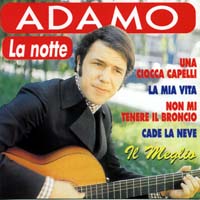2024-12-10
Franz Liszt: The Good and The Bad in His Impact on Classical Music
Franz Liszt is one of the most iconic figures in romantic classical music. Some consider him a musical genius, others are more critical of his impact on the genre. While there is much debate surrounding his place in history, it's undeniable that he had an indelible impact on classical music as we know it today. In this post, we'll dive deep into both sides of Liszt: the good and the bad, analysing some of his compositions and discussing how they shaped classical music then and now. So buckle up for a unique overview into one of history's most famous composers: Franz Liszt!
When we think of romantic classical music, one name that often comes to mind is Franz Liszt. Known for his virtuosic piano playing, flamboyant stage presence, and innovative compositions, Liszt is one of the most iconic figures in classical music history. However, his legacy is much debated among music scholars and listeners. Some consider him a musical genius, while others are more critical of his impact on the genre. In this post, we'll explore both sides of Liszt, analysing some of his compositions and discussing how they shaped classical music then and now. So, let's delve deeper into the impact of Franz Liszt on classical music.
Born in Hungary in 1811, Liszt started playing piano at a young age and quickly became a child prodigy. As he grew older, he began performing in concert halls across Europe and gaining fame for his virtuosic playing. One of his most significant contributions to classical music is the piano recital format, which he popularized in the mid-19th century. This format allowed for solo piano performances that showcased the virtuosity of the performer and the beauty of the music. It's still a popular format for piano performances today, and many credit Liszt for its creation.
Despite his contributions to the piano recital format, Liszt was also known for his flamboyant stage presence and showmanship. Some critics claim that his showy performances detracted from the beauty of the music, and that he prioritized spectacle over substance. Despite this, many still consider him a master of early romantic music, with some of his compositions such as Liebestraum and Hungarian Rhapsody No. 2 remaining favourites among classical listeners.
Another contribution of Liszt to classical music is his piano compositions. His music was groundbreaking in its technical demands and its use of unconventional tonalities and forms. Many of his works were inspired by extra-musical ideas, such as literature, paintings, and nature. One famous example is his series of piano pieces titled Years of Pilgrimage, which was inspired by his travels around Europe and explores themes of spirituality and emotion. His influence can still be felt in contemporary music, with numerous composers such as Debussy and Rachmaninov citing him as an inspiration.
On the other hand, critics of Liszt argue that his music was overly complex, self-indulgent, and lacking in thematic coherence. Some even go as far as claiming that he contributed to the downfall of classical music by breaking away from traditional tonal centres and melodic structures. While these criticisms can be valid, it's also important to consider the context of the time he was composing. Classical music was undergoing a huge transformation during the mid-19th century, with composers experimenting with new forms and tonalities. Liszt's music was just one part of this evolution in classical music.
In conclusion, Franz Liszt was a significant figure in classical music history, with an impact that continues to this day. While there is much debate surrounding his place in history, it's undeniable that he had an indelible impact on classical music as we know it today. His contributions to the piano recital format, piano compositions and his innovation has inspired generations of classical music listeners and composers. Whether you love him or hate him, there is no denying his significance in the development of classical music.
When we think of romantic classical music, one name that often comes to mind is Franz Liszt. Known for his virtuosic piano playing, flamboyant stage presence, and innovative compositions, Liszt is one of the most iconic figures in classical music history. However, his legacy is much debated among music scholars and listeners. Some consider him a musical genius, while others are more critical of his impact on the genre. In this post, we'll explore both sides of Liszt, analysing some of his compositions and discussing how they shaped classical music then and now. So, let's delve deeper into the impact of Franz Liszt on classical music.
Born in Hungary in 1811, Liszt started playing piano at a young age and quickly became a child prodigy. As he grew older, he began performing in concert halls across Europe and gaining fame for his virtuosic playing. One of his most significant contributions to classical music is the piano recital format, which he popularized in the mid-19th century. This format allowed for solo piano performances that showcased the virtuosity of the performer and the beauty of the music. It's still a popular format for piano performances today, and many credit Liszt for its creation.
Despite his contributions to the piano recital format, Liszt was also known for his flamboyant stage presence and showmanship. Some critics claim that his showy performances detracted from the beauty of the music, and that he prioritized spectacle over substance. Despite this, many still consider him a master of early romantic music, with some of his compositions such as Liebestraum and Hungarian Rhapsody No. 2 remaining favourites among classical listeners.
Another contribution of Liszt to classical music is his piano compositions. His music was groundbreaking in its technical demands and its use of unconventional tonalities and forms. Many of his works were inspired by extra-musical ideas, such as literature, paintings, and nature. One famous example is his series of piano pieces titled Years of Pilgrimage, which was inspired by his travels around Europe and explores themes of spirituality and emotion. His influence can still be felt in contemporary music, with numerous composers such as Debussy and Rachmaninov citing him as an inspiration.
On the other hand, critics of Liszt argue that his music was overly complex, self-indulgent, and lacking in thematic coherence. Some even go as far as claiming that he contributed to the downfall of classical music by breaking away from traditional tonal centres and melodic structures. While these criticisms can be valid, it's also important to consider the context of the time he was composing. Classical music was undergoing a huge transformation during the mid-19th century, with composers experimenting with new forms and tonalities. Liszt's music was just one part of this evolution in classical music.
In conclusion, Franz Liszt was a significant figure in classical music history, with an impact that continues to this day. While there is much debate surrounding his place in history, it's undeniable that he had an indelible impact on classical music as we know it today. His contributions to the piano recital format, piano compositions and his innovation has inspired generations of classical music listeners and composers. Whether you love him or hate him, there is no denying his significance in the development of classical music.
Tag: Franz Liszt, music artist, best songs, artist career
2023-02-04
It’s Breakbeat Music, what are you waiting for?
Breakbeat is an electronic music sub-genre started in last decades of 1900s and enjoyed its golden era in early 1990s. It was recognized when DJ Kool Herc was playing funk breaks in rows through irregular drum beats on songs written by James Brown, Funky Drummer, The Winstons or The Amen Brother...read more
2022-11-01
A Journey Through the Musical Biography of Smog
One of the most enigmatic and innovative musical artists of the last decades, Smog has garnered a considerable following thanks to his unique sound and his insightful lyrics. His music is an amalgamation of different genres, including rock, folk, and country, but with a distinctly experimental edge that has led to many considering him a pioneer of the lo-fi music movement...read more
2022-11-01
The Musical Journey of Dionne Warwick: From Humble Beginnings to Iconic Pop Star
When it comes to music legends of the 20th century, few names shine as brightly as that of Dionne Warwick. With a distinctive voice and an impressive range, she was an unstoppable force on the charts throughout the 60s and 70s...read more
2022-11-01
The Musical Journey of Jimmy Page - From His Beginnings to His Iconic Masterpieces
If you are a music buff who loves to groove to classic rock beats, then you must have heard of Jimmy Page - the mastermind behind some of the most iconic guitar riffs of all time. From his early days as a session musician to his stardom as the lead guitarist of Led Zeppelin, Jimmy Page's musical journey is nothing short of extraordinary...read more
2022-11-01
Discovering Adamo: The Artistic Journey of One of France's Most Iconic Singers
In the world of French music, there are few voices as distinctive and timeless as that of Adamo. Born in Italy and raised in Belgium, this multilingual artist has charmed audiences for decades with his unique blend of pop, chanson, and Italian-style ballads...read more
SUGGESTED PLAYLISTS








